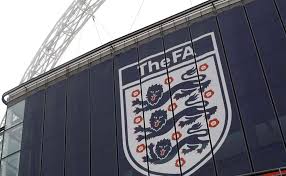February 10 – The English Football Association has been warned “the clock is ticking fast” after a motion of no confidence into its ability to reform itself was passed during a British Parliamentary debate.
While the motion was largely symbolic, parliamentarians warned that legislation will be brought in if changes are not made to the antiquated self-governing body which is deemed by many as unfit for purpose.
British Sports Minister Tracey Crouch said the FA, the world’s oldest football federation, could lose £30–40 million of public funding if it does not modernise.
Crouch said the current workings of the 154-year-old institution do not “stand up to scrutiny”.
“Reform is required,” she told lawmakers, who used words such as “shambolic” and “ancient” to describe the organisation.
“The governing body has every opportunity to bring that around itself. Therefore I believe a vote of no confidence in the FA today is six weeks premature.
“But they should be aware the clock is ticking fast and that failure to reform will lead not just to the withdrawal of public money but further consideration of legislative, regulatory and financial options to bring about the change needed.”
The motion was tabled by the country’s Culture, Media and Sport select committee which argued that the FA had failed to demonstrate that it was willing to improve governance since the government issued new guidelines six months ago.
Critics pointed out that the English Premier League is far too powerful and the FA far too weak, while there were calls for far greater diversity. The FA’s 122-member council contains just eight women and only four from ethnic minorities. Most are over 60 years old, with 12 in their 80s.
FA chairman Greg Clarke has been mandated to come up with a programme of reforms to meet the government guidelines by the end of March and says he will resign if he fails.
“Greg Clarke said if it doesn’t comply he would have failed and he would resign,” Crouch said. “It is true he would have failed but it would be as a consequence of his own board and council failing him and not because the government set an unreasonable challenge of achieving good governance.”
The debate was sparsely attended and the FA was quick to defend its record.
“We accept that our governance needs reform and that many of the points to be raised in today’s debate are valid,” it said in a statement posted on its website.
“But we strongly reject the allegation that we are not performing our duties.”
One aspect that has been largely ignored is what government action the no confidence motion could lead to and whether (or how far) it would fall foul of FIFA rules which forbid government interference in the affairs of national associations.
FIFA has as yet made no comment but in the past it has sanctioned a number of federations, mostly in Africa and Asia, for breaching its regulations. England is one of the four home nations that along with FIFA make the International Football Asssociation Board (IFAB) that oversees the rules of the game.
Contact the writer of this story at moc.l1751500085labto1751500085ofdlr1751500085owedi1751500085sni@w1751500085ahsra1751500085w.wer1751500085dna1751500085

